Roughly two weeks ago we inherited a flock of chickens, it was sort of a rescue operation so we weren't quite ready to have them arrive. We counted them several times and finally decided we had a total of 16 chickens. The trouble was that five of those chickens were roosters.
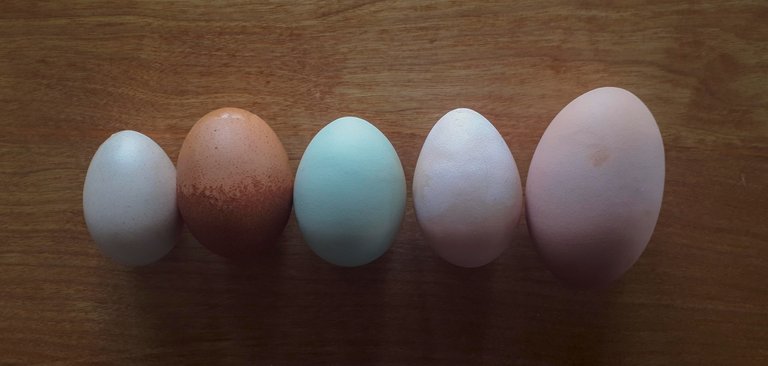
Who Rules the Roost?
While we're not sure what the ideal ratio is between the roosters and hens we figure one rooster could take care of at least twenty hens. With nearly a third of our flock being roosters we knew there was a high likelihood for trouble to brew, and brew it did. Our other conundrum was that this flock had gone from a large yard to a small chicken tractor and there just wasn't enough room for the extra roosters to have their own space. We really wanted to get the main coop prepared before the arrival of the birds but because we had to take this flock on short notice it wasn't possible.
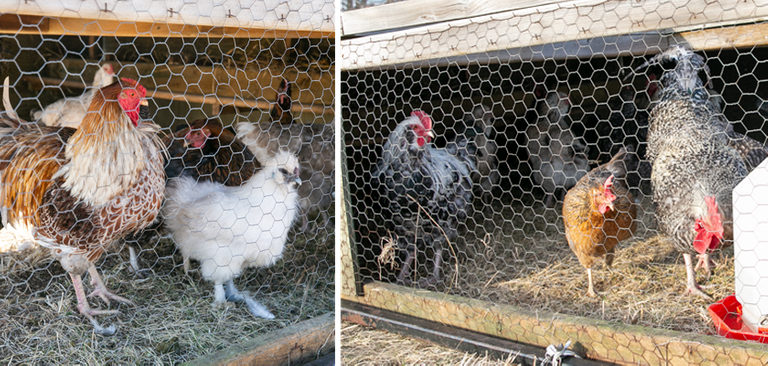
Matt noticed that one of the barnyard roosters was being attacked relentlessly by the larger roosters and even some of the hens. He'd even taken to hiding out in the nesting boxes. We felt badly for him but we weren't able to rehome him. Not wanting him to be bullied to death, we knew that intervention was necessary.
Matt decided to cull the poor rooster rather than letting it suffer; we were also feeding extra roosters with no return on the feed bill. Since only one chicken was being butchered, and Matt had little time to kill and process it, he opted to skin the bird instead of the boiling water and plucking method. Normally, we would spend the extra time to get as much out of the bird as possible but this was an unexpected issue that just needed to be dealt with quickly.
We very much value the life of the animals on our homestead. That rooster fed our family for two meals which I will share with you in another post.
Crowded Coop
We figured we still had too many roosters but were hoping that everyone would start to get along once we removed one from the coop. Unfortunately, the bigger roosters just found a new target, an adorable silkie rooster which measured smaller than our smallest hen.
While tending to the chickens one afternoon, R told me she noticed blood on her favourite chicken, Heart the silkie rooster. I took a quick look, being in a rush, and decided she was just being a dramatic three year old. However, later that night Matt called me to tell me Heart was definitely being bullied and was covered in blood, I felt awful for not having taken a closer look earlier.
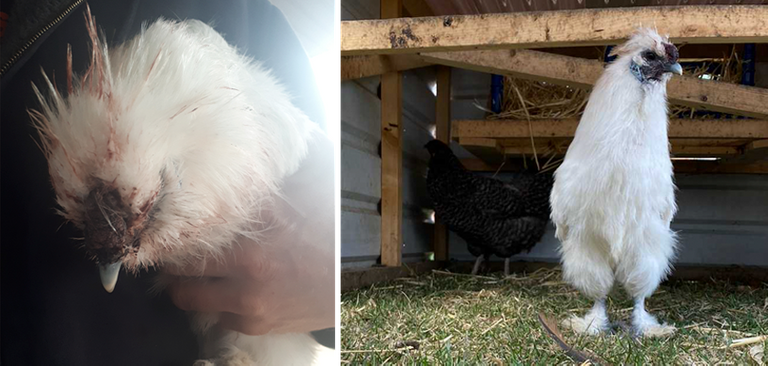
With no other housing options for this adorable little rooster we had two options, butcher him or rehome him. We really didn't want to kill the rooster the kids adored but where could he possibly go? @alexanderfarm to the rescue! I reached out to my good friend Emily and she generously let me bring heart over to recover that night.
At the time, we hadn't decided whether we would try to reintroduce him to the flock once their coop and yard had been established or would just find him a new home. Within a few days we had made a decision to rehome Heart. Our infrastructure just isn't where it needs to be when it comes to separating the chickens should trouble arise. Emily decided they would try to introduce Heart to their flock so check out @alexanderfarm to see how he's fitting in at his new home.
Nurture with Nature
Last week, Matt notice a significant difference in our waste; there was less! We've been saving all of our food peels, the kids dropped food, and non-compostable left overs for the chickens. They're getting a tasty treat and we're contributing less to the landfill.
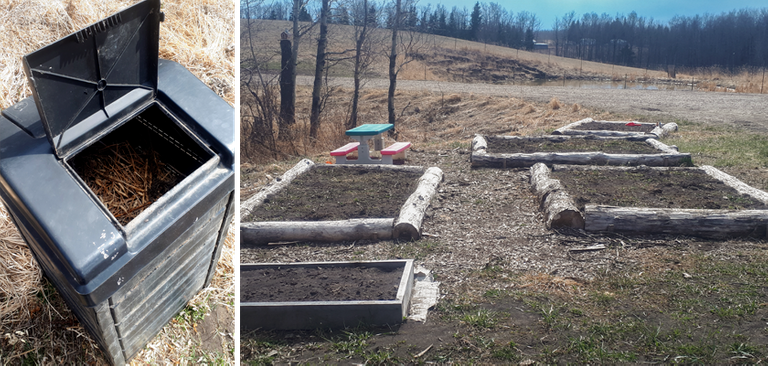
Additionally, Mama Renegade (aka Matt's mom) found a perfectly intact composting bin tossed into a local recycle container. She rescued the bin and brought it out to the homestead. We've already filled it up with last years dead garden plants and have been saving our coffee grounds and egg shells for the bin as well.
Making less waste feels great!
Worth the Hassle?
With all the rooster trouble we've been having you might be wondering if getting chickens has been worth the hassle. The answer is yes! Egg production has gone up from three a day to anywhere between five and seven a day which means we're now at least breaking even on their feed. Although, in some ways we are coming out ahead because of the higher quality eggs, fertilizer, and potential ground clearing they can provide. We are even considering getting more chickens from @alexanderfarm depending on how many new chicks they have to spare come summer time.
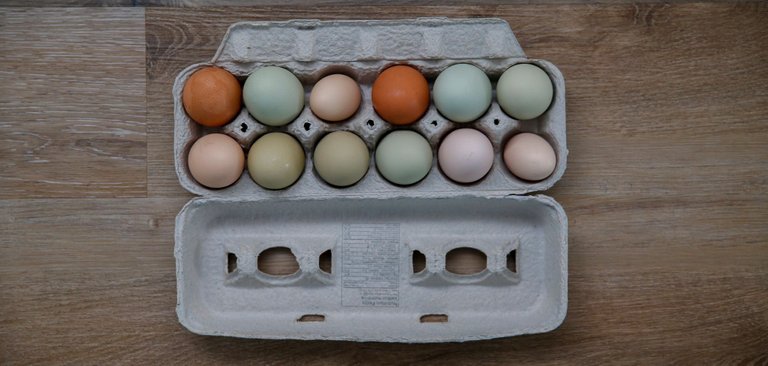
Tending to the chickens has also been an excellent excuse to get me outside with the kids. This last year has had me consumed with baby duty making outside adventures challenging at best. I've been making huge strides in getting back outdoors and the chickens were the tipping point. Mental health, physical health, and regular sunshine are a recipe for improved quality of life.
Lastly, we're contributing less to the landfill which I think we can all agree is a huge win.
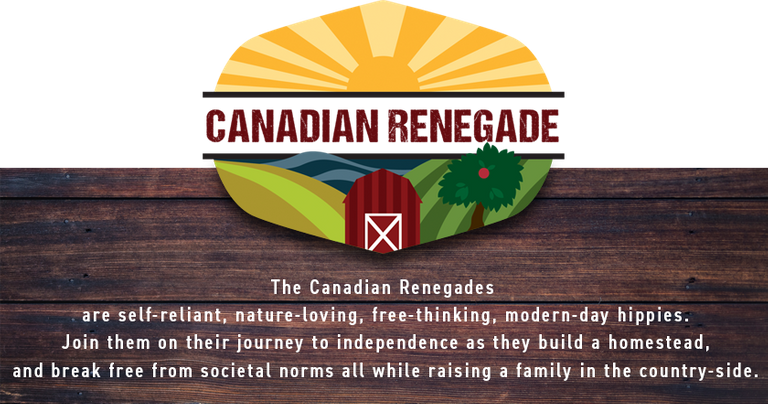
Dealing with roosters can be hard, poor things. Glad Alexander Farm could take Heart.
Rooster to hen ratio isn't cut and dry in my experience. It's generally recommend to have a minimum of 3 hens to one rooster, so they don't kill them with too much attention. Then it depends on what you want from your flock as to how many hens an individual can cover. Too many just means he won't necessarily be able to fertilise all the eggs. Some breeds can cover more hens than others. You'll likely get a feel for your rooster given time.
Looks like it's all going well so far. Looking forward to seeing the finished set up.
Yes, I truly feel badly for the roosters. I am glad Matt culls them when necessary because I am not cut out for it, though I suppose I should learn one day.
Thanks for the tips on the rooster to hen ratios. We have one really friendly barnyard rooster that takes care of the hens and a Blue Laced Wyandotte rooster that we definitely want to keep.
We will be sure to share our coop progress. I think we will get a better feeling for the flock once their area is expanded. -Aimee
Roosters with hens in a small area = trouble. You will soon have hens with bare back, subject to possible sunburn. They will not regrow feathers until the next molt. As you discovered, there's always an Omega bird. If you remove the current one, a new one will be selected.
I sure hope you can get a large area for them soon or you may end up with non-reversable behavior problems...
Yikes! Yes, the coop is the next project on our to do list. We do have one more rooster that will be removed soon, so hopefully that will help. I had no idea there would be such a learning curve to chickens.
Our poor frizzle is missing feathers but her breed has a genetic condition that makes their feathers more fragile. I hope she recovers. -Aimee
Your content has been voted as a part of Encouragement program. Keep up the good work!
Use Ecency daily to boost your growth on platform!
Support Ecency
Vote for Proposal
Delegate HP and earn more
Firstly, I swear I could look at pictures of eggs all day. They’re so pretty!! And little fluffy Heart! He’s seriously so cute. I’ll definitely be including him in a future post.
Right? The egg photos are so satisfying. The colours, the shapes, the sizes. So pretty. The kids are itching to visit Fluffy Heart again too. Can't wait to read about his progress. -Aimee